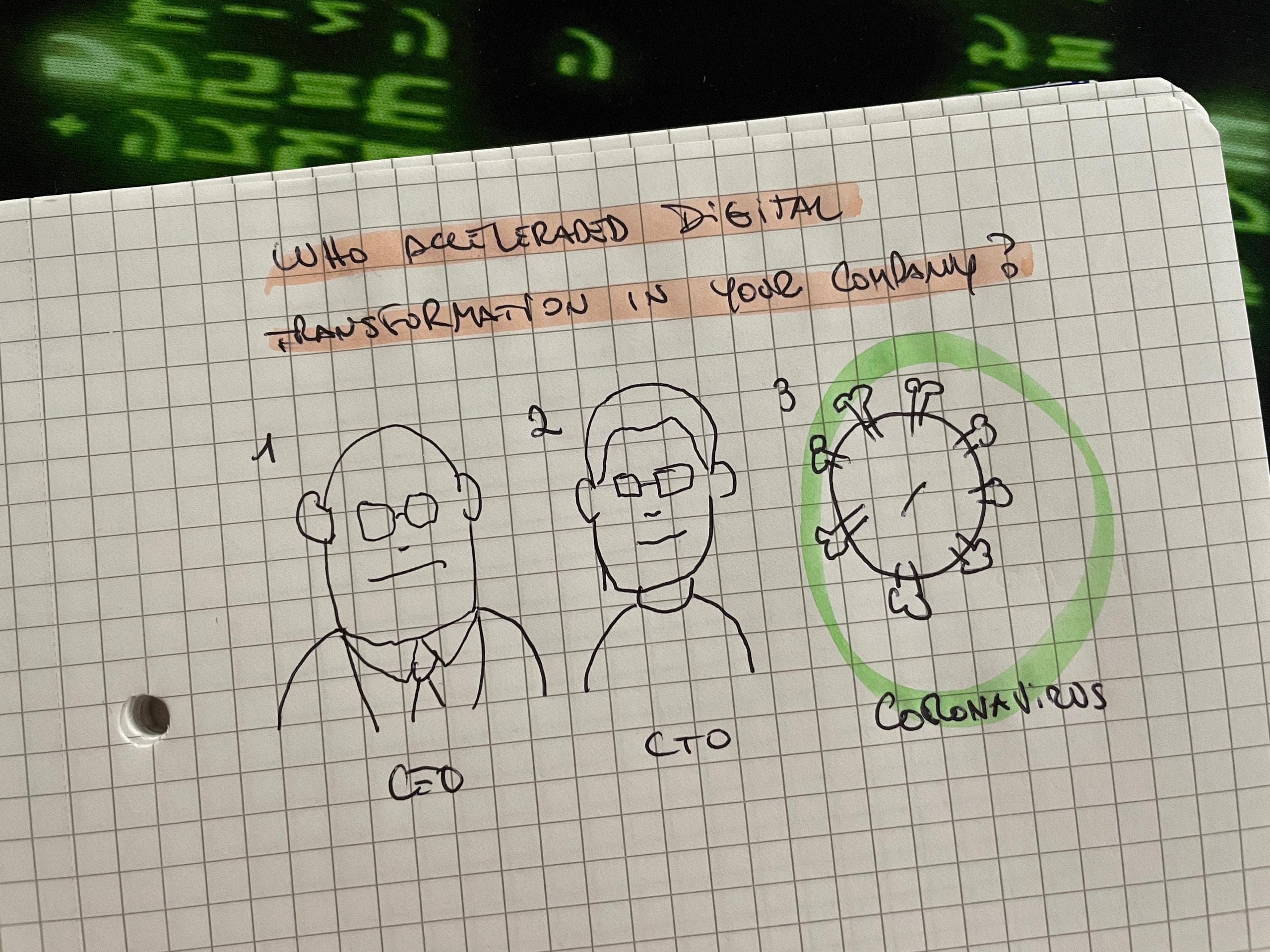Working from Everywhere

3 min read
The new generation of pandemials expects that a job offering contains remote working in one way or another. Remote working just became a commodity
We all know that COVID-19 accelerated digital transformation in many companies, from the big old fashioned enterprise until the shoe repair shop next door. Companies needed to adapt to a new reality in matter of days by sending their workforce home and work remotely. Were they prepared ? Absolutely not, but an extreme situation like this will make the human think and come up with solutions. We always do.
Before the pandemic, Linkedin published the Linkedin’s Global Talent Report. This report covers way more than remote work but we will only dive into the data related to our topic. We can find 5 main reasons why remote working is beneficial for both parties but I'll add some personal experiences to some of them.
1. It attracts candidates
Since this report is 2 years old it mentions that remote work is a "perk" which, from my point of view, is a commodity that every company should offer to knowledge workers. The report mentions that 57% of workers highly value the remote work offered by an employer and 70% of millennials gets a higher interest on the employer if they offer remote working.
Remote work is not a perk anymore, if your employees sit in front of a screen all day long, they are candidates to remotely work.
2. Better life-work balance ?
In the report is mentioned that 77% of talent professionals say an improved work-life balance is among the main benefits of work flexibility.
You can read this in 2 ways, people who know how to balance work and life and people (like me) that does not. If you are in the group that knows how to balance, this is a huge benefit. You just removed 2 hours per day of commuting, wasteful walking between meeting rooms, etc. But on the other hand, if you are not, you might never finish your day because is so easy to say, 5 more minutes honey...
3. Reduce the attrition
54% of talent professionals says that work flexibility encourages employee retention reducing attrition. Also 71% of workers from the millennial group believes that the traditional office will be mostly replaced by remote work.
I do a lot of hiring in Amazon and I'm constantly asked if the positions I have published allow remote working. Is a topic that I heard a lot since the pandemic started.
4. It increases productivity ? maybe
Near half of the knowledge workers believe they are most productive when working from home.
But productivity is not directly related to working from home. If you have your 3 kids running around I can assure you that you'll pray for going back to the office. Now, working from home might help you to be more focused if you are a knowledge worker that needs lots of concentration time. But in my case, where I work with customers and different stakeholders through the day, I'm definitely not more productive because of my location. I can tell you for sure I'm less effective because, for example, I miss a lot of insights that you get when you are face to face.
5. You can access to more talent
“Offering robust flexibility helps the company attract talent and allows them to source candidates from areas beyond their local offices.” — Kourtlee Gravil, Director of Talent Acquisition, Humana.
The report reflects that women are 20%+ more likely than men to mention that flexible work is a very important factor when hunting for a job, but also people with disabilities, military spouses, people with health problems, caretakers, and people living in rural or economically disadvantaged areas. Remote work promotes digital inclusion, therefore, to the expansion of your talent pool.
Conclusion
I arrived to two clear conclusions, the first one, that remote work is here to stay. Like it or not, being more productive or not, as I mentioned before, this is no longer a perk, is a commodity that everybody expects. And the second one is that if you are not offering remote work to certain positions in your company you are missing out on a huge diverse range of candidates.
Rodrigo Asensio
Rodrigo Asensio is Manager of Solution Architecture at Amazon Web Services. He has more than 20 years of experience designing and operating distributed solutions. He is currently responsible for a team in the Enterprise segment helping large clients accelerate their adoption of the cloud and optimize the utilization of their resources.